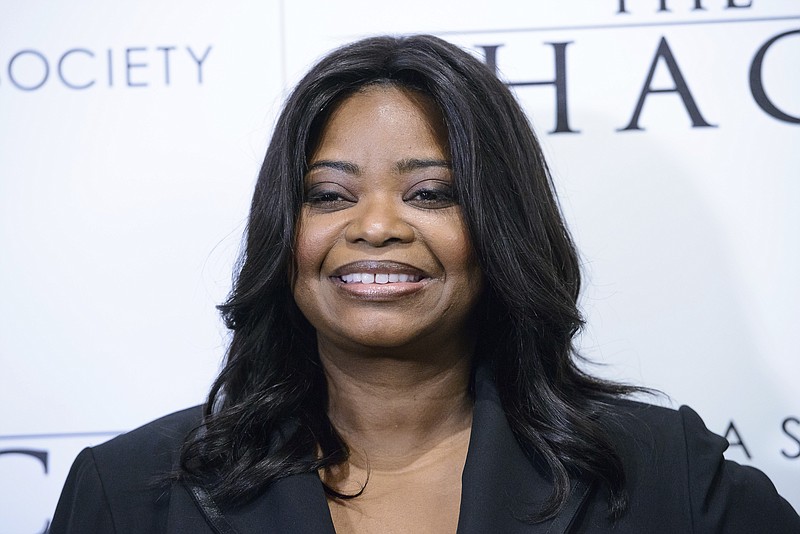10 Actors Who Played God
› George Burns in “Oh, God”› Morgan Freeman in “Bruce Almighty”› Whoopi Goldberg in “A Little Bit of Heaven”› Gene Hackman in “Two of a Kind”› Charlton Heston in “Almost An Angel”› John Huston in “The Bible”› Val Kilmer in “The Prince of Egypt”› Groucho Marx in “Skidoo”› Alanis Morrisette in “Dogma”› George Plimpton in “Religion, Inc.”Source: moveablefest.com
When William Paul Young wrote "The Shack" in 2007, it was intended to be a Christmas gift just for his family; a fictional story of one man's devastating loss, how his faith was shaken by the tragedy and his encounter with God while grieving.
He never expected his self-published fiction to sell more than 22 million copies, be translated into more than 30 languages - or spark a national controversy over its unconventional theology.
Ten years later, that controversy reignited when "The Shack" was released on film March 3. So what's causing such debate over a movie whose theme is forgiveness?
"The book is not based on biblical teachings," United Methodist minister Ben Matherly posted on Facebook, warning friends who might be planning to see the movie.
Now on the ministerial staff at Christ United Methodist Church in East Brainerd, Matherly cited several criticisms that Dr. Albert Mohler Jr., president of the Southern Baptist Theological Seminary in Louisville, Ky., wrote shortly after the book was published.
Mohler pointed out doctrinal liberties that Young takes in his book that range from universalism (many ways to God) to the character of God stating "I don't need to punish sin It's not my purpose to punish sin." Mohler argues that the Bible states in Romans 6:23: "The wages of sin is death, but the gift of God is eternal life in Jesus Christ our Lord."
"I've read the book four or five times and I've seen the movie and enjoyed it," says Chattanoogan Al Slater. "If you are grounded in your faith, you don't try to find faults, just enjoy the movie. It is fiction. The theme is forgiveness and healing painful hurts. The main thing is God wants a relationship with his followers."
"I liked the book and had no problems theologically. But I'm relatively open-minded," says the Rev. Jill Jenkins, a former Chattanooga Baptist children's minister, now retired.
The plot of "The Shack" centers on Mack Phillips (played by Sam Worthington), whose 7-year-old daughter is kidnapped and murdered. Several years later, Mack receives a mysterious letter requesting that he return to the shack where the murder occurred. Once there, he encounters three strangers who reveal themselves to be the divine Trinity - God, Jesus and Holy Spirit.
And therein lies the predominant criticism of the book/movie. Not only is God portrayed as a woman, but Jesus and Holy Spirit are depicted in human form as well, which is contrary to the way Scriptures in the Old and New Testaments represent them.
Young interprets the Holy Trinity as a trio of three divine people: God is an African-American woman named Papa and played by Octavia Spencer. Jesus, a Jewish carpenter, is played by Avraham Aviv Alush; and an Asian woman, played by Sumire Matsubara, is the Holy Spirit, called Sarayu.
"We all have our mental picture of what the Holy Trinity would look like when they come to us, so I'm not sure what the fuss is about," says Hixson resident Beth Painter. "God comes to us through different forms our entire life."
Painter says she was so moved by the book that she shared it with her Bible study group.
Pastors agree that the argument over Young's portrayal of God is most likely rooted in how the deity is described from childhood years of Sunday school and on. Scripture repeatedly refers to him as "God, the Father," which becomes ingrained and accepted as the norm.
"I think when we think of God, we need to think more of what John says in John 4:24: 'God is a spirit, and they that worship him must worship him in spirit and in truth,'" says the Rev. Doug Fairbanks Jr., senior pastor of First-Centenary United Methodist Church.
Fairbanks says he has seen the movie and had no problem with the portrayal of the Trinity.
"It is a very challenging, and I think theologically healthy, portrayal," he says. "We continue to try to fit God into our human understanding rather than understanding God cannot be boxed up. I think sometimes we human beings have a very small, narrow understanding of God."
The Rev. Roderick Ware, pastor of New Monumental Baptist Church in Woodmore, says he believes humans "wrestle a lot with preconceived notions of who God is and how God manifests himself."
"God reveals himself in a way we can comprehend" because the true fullness of God can't be conceived by human thought, he explains. "Otherwise God wouldn't be God. We understand God in the context that God will allow us to reach him."
In an interview with GoodReads, author Young said he liked the theological conversations his book evoked.
"At least with an angry person, you can have a conversation because when people are upset, something in them is being challenged enough to raise their ire, and that's an engaged process and opens up the possibility of really great conversation," he said.
Chattanoogan Rebecca Campbell says she read the book several years ago and "thought it was the most thought-provoking way of looking at the Trinity," one that seemed "more personal than perhaps the more formal language of the Bible."
In the book and film, through conversations with the trio - Papa, Jesus and Sarayu - Mack comes to terms with his daughter's death, forgiveness and his own relationship with God. Fairbanks compares the book/movie to "a carrier of truth," adding that people sometimes take everything so literally they miss the real message.
"The message is forgiveness, which is the heart of human dilemma and struggle," he says. "Just look at what's going on in our society and in the political arena today. I think the movie's wrestling with forgiveness is right at the heart of what we need to be struggling with in our society in this day and time.
"I think it's challenging us to a better understanding of God so that, with a greater understanding of God, we have a greater appreciation of each other on this Earth."
Contact Susan Pierce at spierce@timesfreepress.com or 423-757-6284.

